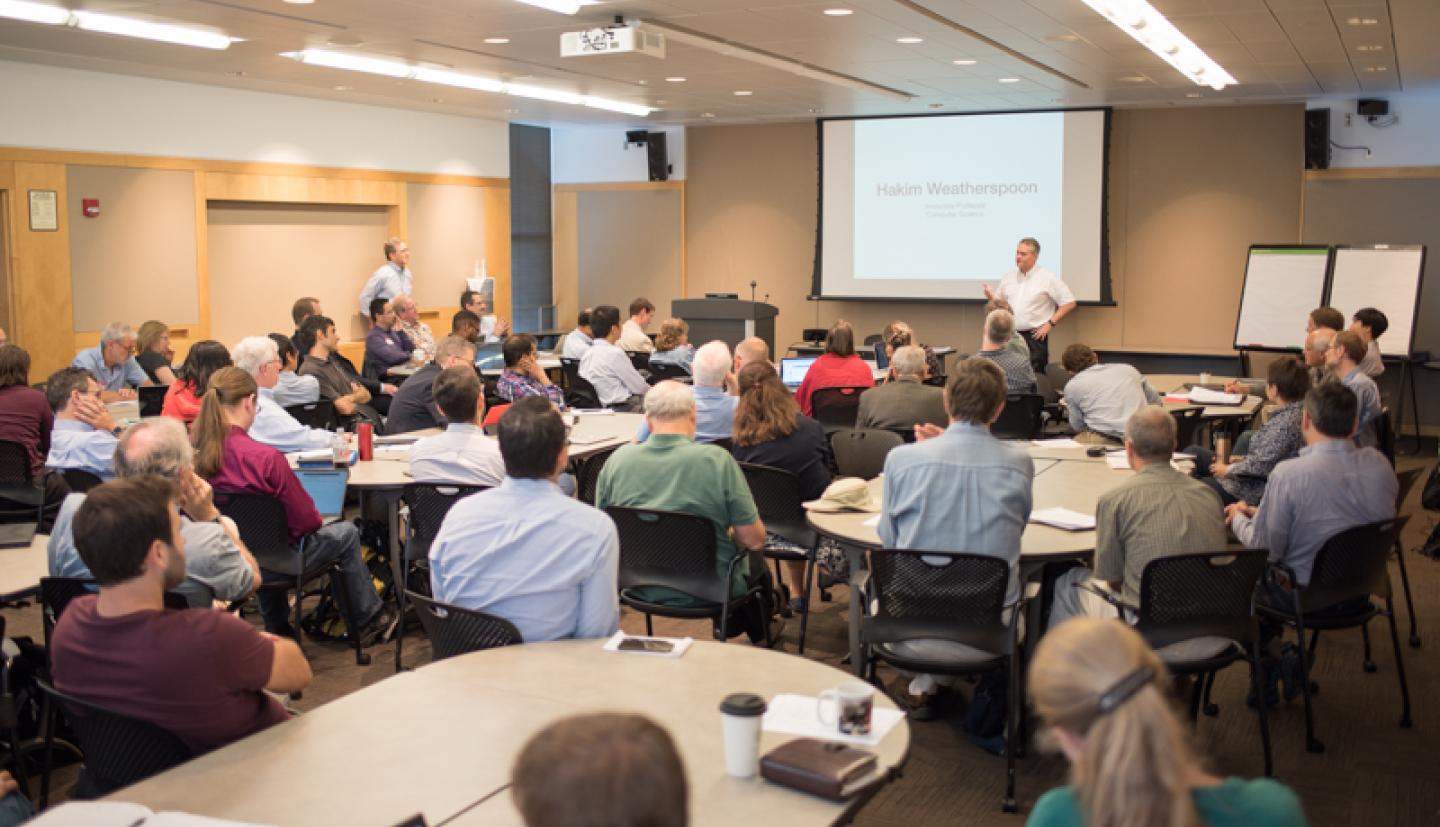How can 10 billion people be sustainably fed by the year 2050? That was the foremost question that animated discussions at a digital agriculture retreat held Oct. 10, when more than 70 university scientists and engineers gathered on campus to define the research areas that will shape the future of the work at Cornell.
Facilitated by Jim Ballingall, executive director of the Cornell Digital Agriculture Initiative, the retreat culminated a series of meetings held in 2017 aimed at finding synergies between Cornell researchers as they develop technologies that optimize key food systems components, such as increased farming productivity and profitability while reducing environmental impacts.
As a result of the meetings launched in January by the College of Agriculture and Life Sciences (CALS), faculty from multiple Cornell colleges formulated the Cornell Digital Agriculture Initiative to draw on university strengths in agriculture, engineering and information technology. A vision for digital agriculture at Cornell and a series of key research areas were outlined in a resulting white paper authored by Harold van Es, professor in the Soil and Crop Sciences Section of the School of Integrative Plant Science; Abe Stroock, professor of chemical and biomolecular engineering; José Martínez, professor of electrical and computer engineering; Hakim Weatherspoon, associate professor of computer science; and Josh Woodard, assistant professor of agricultural finance and business in the Charles H. Dyson School of Applied Economics and Management.
The retreat began with short talks intended to spark ideas and discussion. These lightning presentations spanned a range of topics, from current research on prediction algorithms and sensors for weather, water and disease management, to the challenges of system design and data standardization. Speakers represented five colleges at Cornell and pulled from a diversity of research specialties.
“Right now there are immense technical, social and business problems for which agriculture needs leadership and solutions,” Ballingall said. “Cornell’s world renowned expertise in agriculture, engineering, economics and information technology, its long tradition in outreach, and a culture of radical collaboration across college boundaries, can drive forward solutions to make farmers and food producers more productive, profitable and sustainable.”
Industry representatives from Land O’ Lakes, John Deere, IBM and Microsoft gave presentations focused on areas of common interest and potential sources of financial support for joint initiatives. The recent data-sharing agreement established between John Deere and Ag-Analytics, a cloud-based application that provides digital agriculture analytics founded by Woodard, exemplifies the potential for industry-academic partnership, according to Ballingall.
Afternoon breakout sessions focused on the challenges, and points of synergy for research areas cutting across agriculture, computer science, engineering, biology, and socio-economic disciplines. Summary presentations from these discussions will form the basis for future technical reports and peer-reviewed publications.
“Over the last century, without any focused organization across colleges, Cornell has been a world leader in technologies — the gene gun, multi-photon microscopies, micro- and nano-scale sensors, and gene sequencing techniques — that advance agriculture and life sciences,” Strook said. “A concerted effort across the university, like the one emerging around digital agriculture, promises to radically accelerate the innovation process.”






